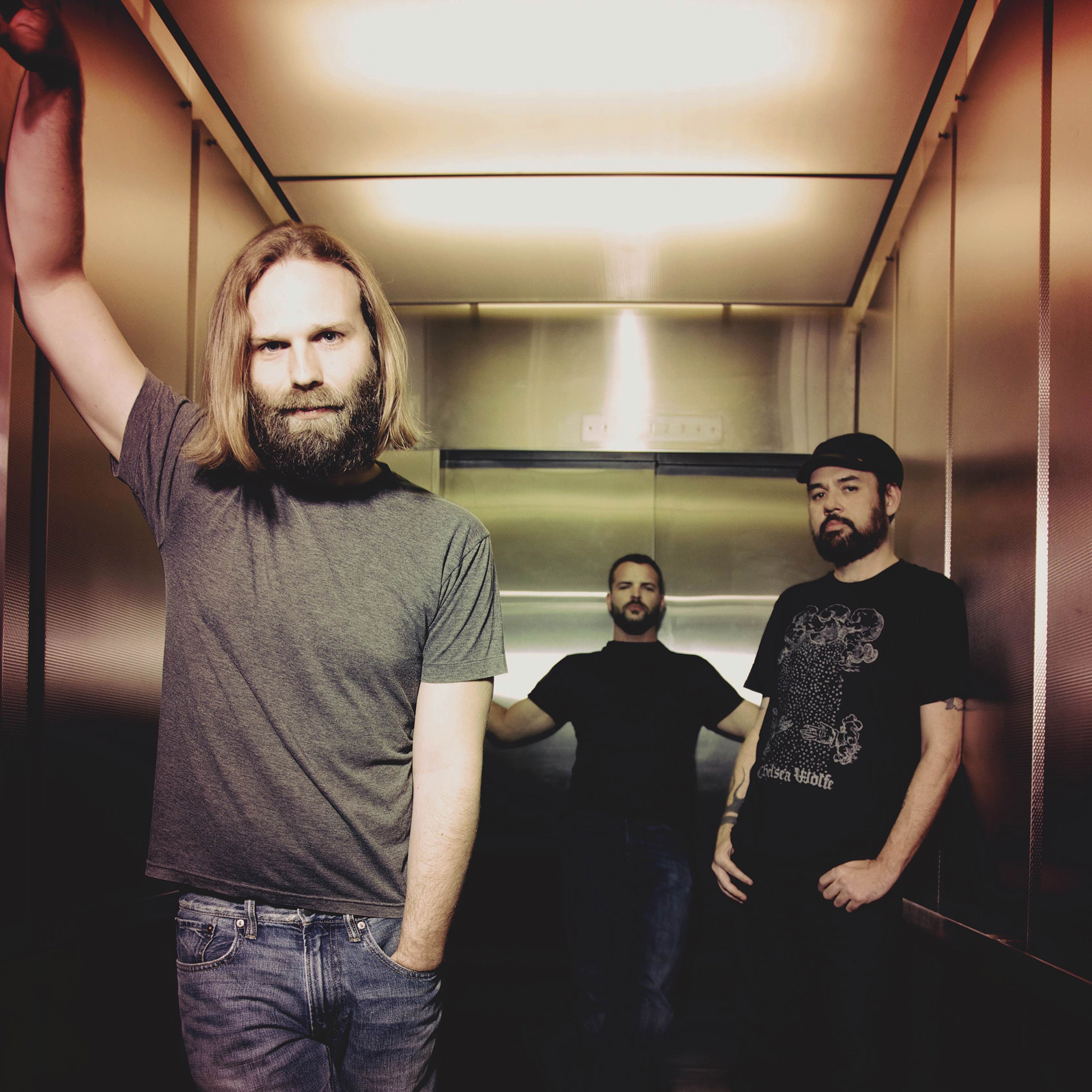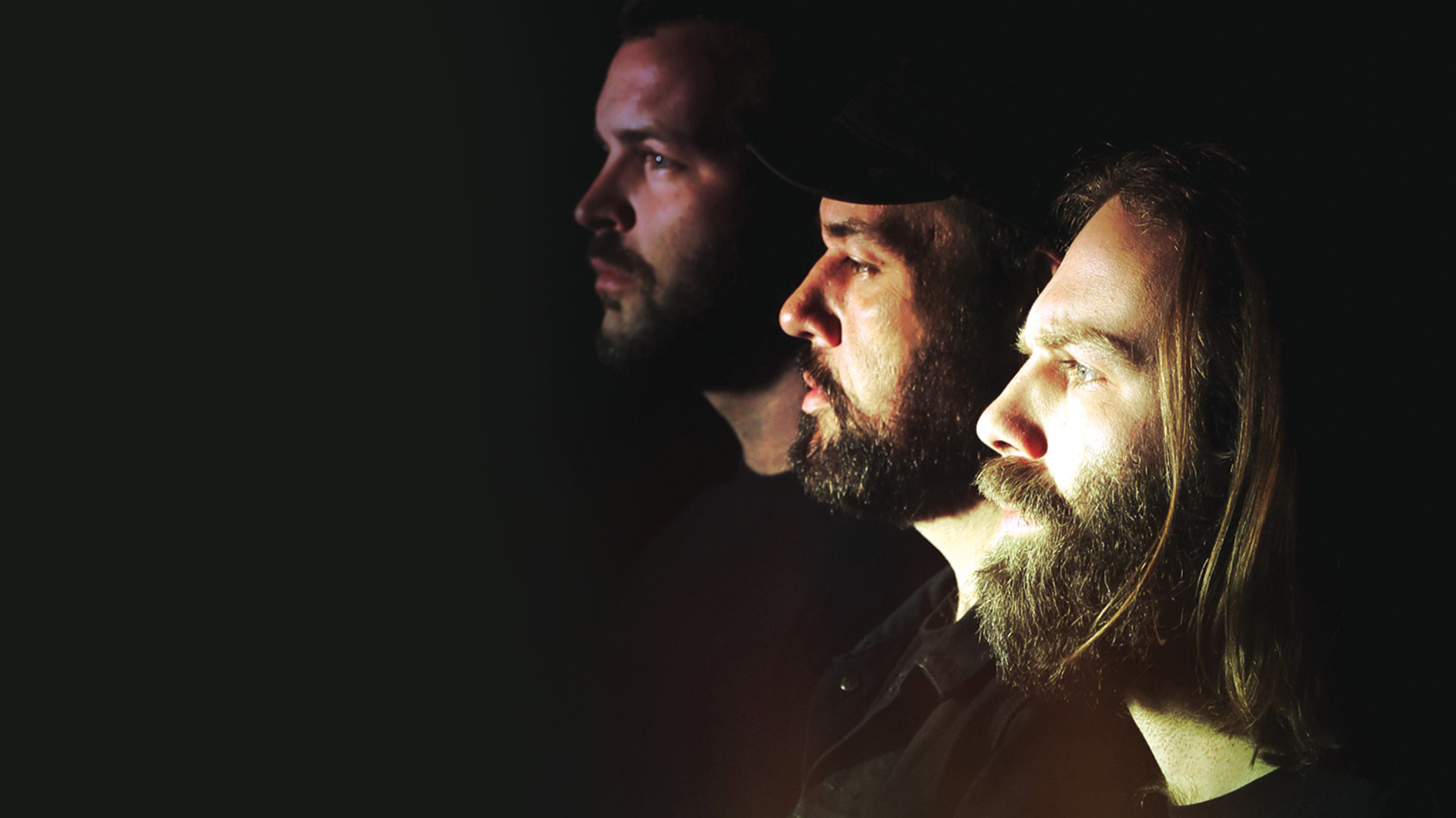One of the biggest myths about prog rock is that it’s about playing as many notes as possible. Dream The Electric Sleep understand this annoyingly persistent notion and have spent the better part of a decade engaged in a quest to remind us that this couldn’t be further from the truth.
Their newly released third album, Beneath The Dark Wide Sky, is a triumph of the less-is‑more theory, relying on tones, textures and soundscapes to create an impact. And yet it’s a melodic and cerebral record. The fact that large chunks are instrumental makes it more impressive still: when the band do use words in their songs, they always make them count.
“That the album is sparse is a good observation,” smiles frontman/guitarist Matt Page, talking to Prog via Skype from his home in Lexington, Kentucky. “As an artist, the biggest challenge is keeping people invested in your work, so gaps and spaces are a way of maintaining that interest. Our music can be listened to purely as entertainment, but should you wish to, there are other layers that can be peeled away. The album art, the lyrics, the music – they’re all part of a web.”
The trio are understandably proud to have worked with Nick Raskulinecz – the Grammy-winning producer of such giants as Rush, Mastodon, Ghost, Coheed And Cambria and the Foo Fighters – on their newest baby, maintaining that his outside influence helped them focus on making the best music of their career. And yet even musicologist Raskulinecz was left stumped in trying to describe what they do.
We saw ourselves as coming from the tradition of Led Zeppelin or any of those bands from the 1970s that were interested in writing great, challenging music.
“We were in the studio and Nick took a call from somebody who enquired about which genre we were a part of and none of us knew how to respond,” Page laughs. “Eventually somebody piped up with, ‘Er… we’re progressive rock… I think!’”
However, from the outset, Dream The Electric Sleep never sought to be – quote, unquote – progressive.
“We saw ourselves as coming from the tradition of Led Zeppelin or any of those bands from the 1970s that were interested in writing great, challenging music,” Page explains. “However, I won’t lie – it was an incredible honour to have been nominated in the Limelight category at last year’s Progressive Music Awards. We didn’t win, but it was cool it happened and it made us realise we must be doing something that resonates with that community.
“What’s beautiful about being part of the prog movement is that the listeners seek engagement,” he continues. “I think of music as a cake, and so many [conventional] followers want the icing alone. What they crave is that sugar rush right into the bloodstream, but prog is all about the entire cake… it’s not good without the cake.”

Page chuckles at your correspondent’s suggestion that prog is like a 10-tier wedding cake. “Yeah, that’s great because I want to write music that’s 10 tiers tall,” he smiles. “I want an audience that seeks to consume that cake; to actually spend a little time doing so.”
DTES list Pink Floyd, Peter Gabriel and Rush among a disparate set of influences upon their music, along with The Beatles, The Who, Soundgarden, Neurosis, The Beach Boys, Elton John, Joni Mitchell, Depeche Mode and Tears For Fears – plus what their latest record company biography terms “1970s AOR with 80s darkwave”. Page is uncomfortable with trying to classify his group’s style and throws his arms in the air when quizzed about the biography’s reference to “indie rock”.
“It’s a great question – how did that get in there?” he guffaws. “Are Arcade Fire an indie rock band? If so, I do listen to them. But gosh… I love so many vastly different types of music, it’s hard to know how they fit into the melting pot.”
However one wishes to describe DTES’ sound, they have the kind of musical telepathy that only comes from experience, and/or in this case a family tie. Being cousins, Page and drummer Joey Waters have played together for almost two decades, since the age of 16. Completing the line-up, Chris Tackett was in a short-lived hard rock combo from Huntington, West Virginia called Chum, who released an album for Century Media in 1996.
“Chum were big regional favourites and as kids, Joey and I regarded Chris as a bit of a rock star,” Page admits with a semi-smirk. “So when Chum broke up and he moved to Lexington, we were in awe to be in a band with him. But right from the first song we played together, the chemistry was strong and immediate.”
Marooned amid a sea of rock’n’roll, country and punk rock wannabes, DTES have the misfortune of hailing from a city that Matt Page agrees is something of a cultural backwater – from a progressive music standpoint at least. They’d love to play live but with no scene to nourish them, a miserly total of around 30 shows have been performed during a seven-year existence. However, this sense of isolation only ramps up their determination to succeed.
“It’s been a bit of a lonely road and we do feel isolated,” Page nods. “Kentucky’s not a big state – there are only 250,000 people here in Lexington and all of the other major cities are three to eight hours away. So, we’ve tried to take advantage of the modern music model. Instead of focusing in a local way, we’ve used our limited resources to consider things more globally, actively seeking out people that might be interested in what we do. With so little opportunity to play live for our supporters, stuck here in this vacuum, we’ve also spent a lot of time working on our songcraft.”
It’s been a long, slow and frustrating road for Dream The Electric Sleep, and Page doesn’t mind sharing the fact that 2011’s debut Lost And Gone Forever – which was made, he says, “when we didn’t have a clue what we were doing” – sold “maybe 2,500 copies”, while its 2014 follow-up, Heretics, fared maybe twice as well.
“Numbers are great but I’m more interested in the amount of really engaged people that listen to our music,” he shrugs. “I’d rather have 2,000 really engaged supporters than half as many supporters who were much more ambivalent. There’s nothing I like more than receiving emails from those that enjoy our music and want to ask questions about it. That’s way more important than putting out something that’s simply consumed and forgotten about.”
Not only is the sentiment interesting, but so is the phraseology. Throughout our 30-minute conversation, it becomes evident that Page prefers the terms ‘supporter’ or ‘listener’ to ‘fan’. Might this be because so-called fandom implies a fairly flimsy, passive level of commitment?
To say I’m a ‘fan’ of Peter Gabriel diminishes the way I really feel about him. Gabriel is a part of my life; he’s influenced my values and thoughts and he’s made me ask questions.
“Yeah,” he replies enthusiastically. “To say I’m a ‘fan’ of Peter Gabriel diminishes the way I really feel about him. Gabriel is a part of my life; he’s influenced my values and thoughts and he’s made me ask questions. That word undervalues the bond between us.”
Just like the conceptually based Heretics, which concerned the Suffragette movement, Beneath The Dark Wide Sky has a central theme. It’s based upon a series of heart-rending images of widespread poverty taken by 1930s photographer Dorothea Lange during America’s Great Depression in an era known as The Dust Bowl. With daytime employment as a Professor Of Art at the University Of Kentucky, Page articulates its meaning to Prog at length, though in a soundbite, it’s about “how aesthetics within culture are capable of motivating thought and change”. Put that in your pipe and smoke it, Neil Peart!
“With this new album we’ve taken some steps forward and left a few things behind,” Page says of the record’s musical content. “All I can say is that it’s more deliberate. We had a better idea of what would happen when we did x, y or z.”
Obviously, DTES are hoping that their association with a luminary on Raskulinecz’s scale will generate an increased level of attention. Signed to a German independent label, working with such a heavyweight represents a real coup, though the liaison came about via the group’s own initiative.
“We had read somewhere that Nick liked receiving demos from small bands so we sent him ours and, incredibly, just two days later a text arrived from [manager] Frank McDonough saying he was interested,” relates Page disbelievingly.
The deal was sealed after DTES spent a weekend jamming with Raskulinecz at his studio in Nashville. All that remained was to make the figures add up.
“Did Nick agree to work for mates’ rates?” Page responds, grinning. “Let’s just say he took a pay cut, though being used to working with major labels and having A&R guys in the room, looking over the shoulders of him and the artistes, he seemed excited. But it cuts both ways – had he been a crappy person, we wouldn’t have wanted to work with him in the first place.”
Beneath The Dark Wide Sky is available now via Mutiny Records. For more information, see the band’s website for more.

